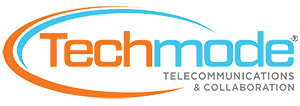Private Instance vs. Multi-Tenant Cloud: Why Architecture Matters for Business Communications
Choosing the right cloud phone system architecture- private instance vs multi-tenant cloud- can determine whether a business communications platform becomes a competitive advantage or an operational liability. While features and pricing often dominate the conversation when selecting a UCaaS (Unified Communications as a Service) provider, the underlying architecture—whether private instance or multi-tenant—fundamentally shapes security, performance, and control. This decision impacts everything from call quality and system availability to data protection and customization options.
Understanding Cloud UCaaS Architecture Types
Cloud phone systems come in two primary architectural models: private instance (single-tenant) and multi-tenant. These approaches represent fundamentally different philosophies about how cloud resources should be allocated and managed.
Private Instance Architecture provides each customer with a dedicated, isolated environment. In this model, a business receives its own separate instance of the communications platform, complete with dedicated computing resources, storage, and database. This architecture ensures complete isolation from other customers, with no shared infrastructure components that could affect performance or security.
TechmodeGO’s private AWS instance deployment exemplifies this approach. Each client receives “a dedicated AWS instance, with unique server IPs and custom web addresses” and “dedicated server resources within AWS, ensuring maximum resiliency, enhanced security, and full isolation from other clients.”
Multi-Tenant Architecture, by contrast, places multiple customers on a shared platform. All customers access the same application instance and share underlying infrastructure resources, though their data remains logically separated. This approach is common among many UCaaS providers as it maximizes resource efficiency and typically allows for lower per-user costs. The shared infrastructure model also enables providers to maximize their profit margins by distributing overhead costs across numerous customers.
The difference between private instance vs multi-tenant cloud is often explained through real estate analogies. As Spencer Nguyen notes, “Single-tenant cloud architecture involves a single instance of a software application and database that serves only one customer,” similar to living in a single-family home with your own facilities and security. Multi-tenant architecture is “when a single software instance and database serve several customers,” more like an apartment building where tenants share common areas and infrastructure while maintaining privacy within their individual units.
Understanding the practical implications of these architectural approaches helps businesses make informed decisions based on their specific needs:
Security and Data Isolation
Private instance deployments provide physical separation of data and resources, creating stronger boundaries between customers. As Digital Guardian explains, “A single customer and a single server is often contained on secure hardware being used by a single business,” which enhances security by minimizing potential breach exposure.
Multi-tenant systems rely on logical separation within shared environments. While providers implement safeguards to prevent cross-tenant data access, this model introduces additional security considerations. If security controls fail, there’s potential for wider impact across multiple customers.
Performance and Reliability
Private instances ensure dedicated resources, eliminating what cloud architects call the “noisy neighbor” effect—where one customer’s activity impacts others sharing the same resources. As WorkOS notes, “Because each customer has dedicated resources (CPU, memory), the problem of the ‘noisy neighbor’ effect is avoided.” This translates to more consistent performance, especially during peak usage times.

With multi-tenant architectures, resource contention can occur when multiple customers experience high demand simultaneously. Without proper capacity planning, this can lead to inconsistent performance across the platform.
Control Over Updates and Maintenance
Private instance deployments give businesses greater control over when updates and maintenance occur. As TechmodeGO’s Architecture Suite brochure highlights, customers enjoy “Updates on Your Schedule” with “No surprise outages. Plan maintenance when it works for you.”
In multi-tenant environments, updates typically happen simultaneously for all customers. While this ensures everyone has the latest features and security patches, it removes flexibility around timing these changes, which can disrupt critical business operations.
Customization Capabilities
Single-tenant architectures allow for deeper customization since changes won’t affect other customers. “Single-tenant systems are also more customizable, as each customer can have their own unique configuration,” notes Digital Guardian, making this model appealing for businesses with specialized requirements.
Multi-tenant systems generally offer configuration options rather than true customization. Changes must consider the impact on all tenants, limiting the degree of specialization possible.
Cost Structure
Private instance deployments typically involve higher costs due to dedicated resources. However, this premium often comes with greater control, security, and performance benefits that may deliver long-term ROI for businesses where communications are mission-critical.
Multi-tenant architectures distribute infrastructure costs across many customers, usually resulting in lower per-user pricing. This approach allows providers to achieve economies of scale, as CloudZero explains: “Multiple customers share the cost of the environment in multi-tenancy, so the application is cheaper to build and maintain.”
Why Private Instance Architecture Often Wins
For business communications, private instance architecture frequently delivers superior outcomes despite potentially higher costs. Here’s why:
Enhanced Security for Sensitive Communications
Business communications often contain sensitive information—from financial discussions and proprietary strategies to customer data and personal information. Private instances provide stronger isolation, reducing the risk that security issues affecting one customer could impact others.
As Ping Identity notes, “Regulated industries, like financial services and healthcare, are prime candidates for a dedicated-tenant system, as they store and protect high-risk and personally identifiable information (PII) in a single database.”
Reliability Advantages with Dedicated Resources
Communication systems represent critical infrastructure for most businesses. When phone systems experience quality issues or outages, operations can grind to a halt, directly impacting customer service and revenue.
TechmodeGO’s architecture illustrates how private instances enhance reliability through “99.999%+ Uptime” with “Enterprise-grade availability to keep your business connected.” This translates to less than six minutes of downtime per year—a significant advantage over the 99.9% (8.76 hours of annual downtime) or 99.99% (52.6 minutes) guarantees typical of multi-tenant platforms. Unlike many cloud providers who advertise theoretical uptime percentages without publishing their actual performance data, businesses should seek providers who maintain transparent uptime records and can demonstrate their real-world reliability, not just their service level agreements on paper.
Custom Integrations and Business-Specific Needs
Private instances provide exceptional flexibility for businesses requiring specialized integrations with other systems. The TechmodeGO Architecture Suite highlights how “Private servers open the door to custom server-to-server integrations with CRMs, ERPs, analytics platforms, VPS and more.”
This capability proves especially valuable when businesses need their phone system to connect directly with industry-specific applications or proprietary systems. Multi-tenant environments typically restrict integration options to standardized APIs that must work universally across all customers, limiting possibilities for specialized workflows.
Real-World Considerations When Choosing Cloud Architecture
Businesses evaluating UCaaS solutions should consider several factors beyond the architecture itself:
Business Size and Requirements
Company scale often influences architectural needs. While multi-tenant solutions may work for smaller organizations with basic requirements, businesses with 20-2000 employees typically benefit from private instance deployments, especially when communications represent a critical business function..
Compliance and Regulatory Requirements
Industries handling sensitive data face stringent regulations regarding data storage, access, and security. Private instance architectures simplify compliance with requirements like HIPAA in healthcare or financial regulations by providing clearer data boundaries and control.
Performance Expectations
Organizations should assess their tolerance for performance variations. Businesses where communications directly impact customer experience or revenue generation—such as contact centers, sales operations, or service providers—often benefit from the consistent performance of private instances.
Total Cost Consideration
While multi-tenant solutions may offer lower per-user fees, the true cost comparison should include potential business impact from downtime, security incidents, or limitations on customization.
Conclusion
When evaluating cloud phone systems, private instance vs multi-tenant cloud matters as much as features and pricing. Private instance deployments offer significant advantages in security, reliability, control, and customization—critical factors for businesses where communication systems represent essential infrastructure rather than merely utility services.
While multi-tenant solutions may provide adequate service for basic needs, organizations should carefully consider the long-term implications of their architecture choice on business operations, security posture, and ability to adapt to changing requirements.
Frequently Asked Questions
Q: What’s the main difference between private instance and multi-tenant cloud phone systems?
A: Private instance systems provide each customer with dedicated resources and infrastructure, similar to owning a single-family home. Multi-tenant systems have customers sharing resources on the same platform, more like apartments in a building. The former offers greater isolation and control, while the latter typically costs less but provides fewer customization options.
Q: How does architecture choice impact security?
A: Private instance architecture provides physical separation between customers, minimizing the risk that security issues affecting one customer could impact others. Multi-tenant systems rely on logical separation within a shared environment, which can introduce additional security considerations if those controls fail.
Q: Does architecture affect call quality?
A: Yes. Private instances provide dedicated resources that aren’t affected by other customers’ usage, eliminating the “noisy neighbor” problem that can occur in multi-tenant environments when multiple customers experience high demand simultaneously. This translates to more consistent call quality, especially during peak times.
Q: Are private instances always more expensive than multi-tenant solutions?
A: While private instances typically have higher direct costs due to dedicated resources, the total cost comparison should include potential business impact from downtime, security incidents, or limitations on customization. For businesses where communications are mission-critical, the higher reliability and control may deliver better long-term value.
Q: How does architecture affect customization capabilities?
A: Private instance architectures allow for deeper customization since changes won’t affect other customers. This enables businesses to tailor the system to their specific workflows and integration needs. Multi-tenant systems generally offer configuration options rather than true customization, limiting the degree of specialization possible.
Techmode’s commitment to private instance architecture is a key factor behind the company’s exceptional customer satisfaction metrics. By providing each client with their own dedicated AWS instance, Techmode delivers the security, reliability, and customization capabilities that businesses need from their communication systems. This approach to cloud architecture is a significant contributor to Techmode’s A+ BBB rating and industry-leading 85 NPS score—metrics that reflect real customer experiences with a platform designed for maximum performance and minimal compromise.










